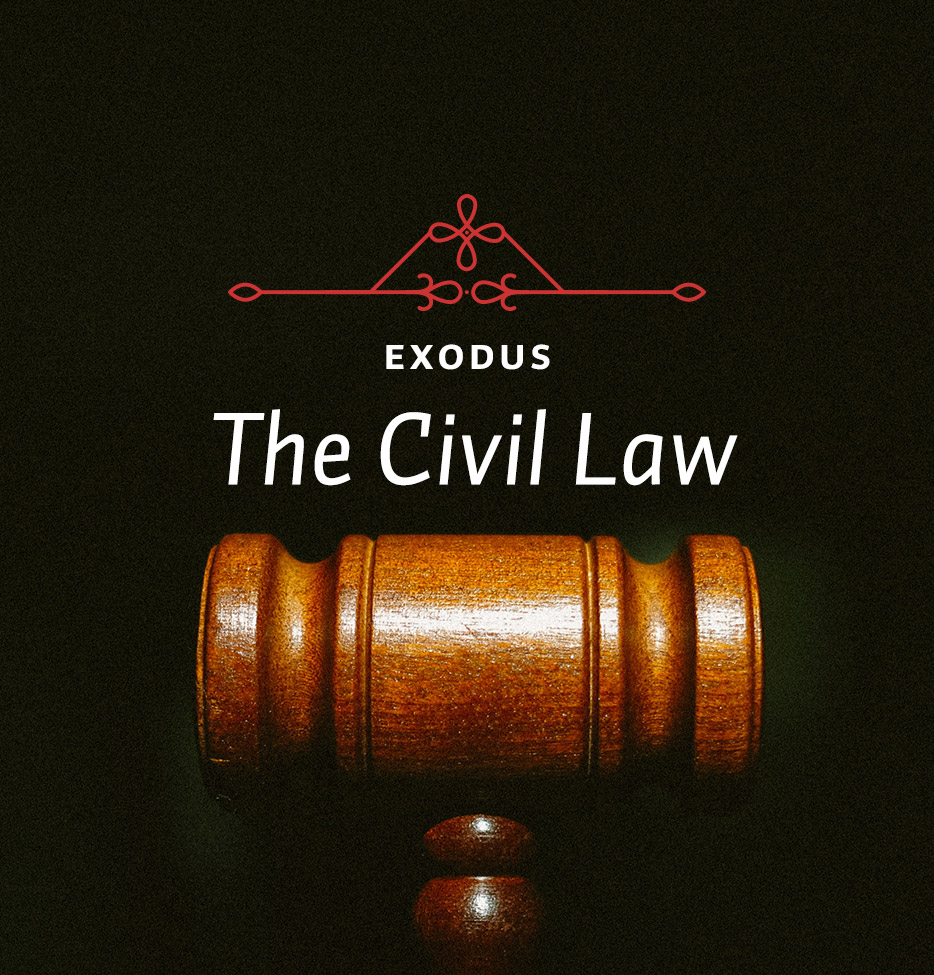Yesterday we looked at one view explaining the usefulness of the law in our own time. Today we look at the other two.
The second view is that of dispensationalism, which makes a very strong contrast between the dispensation of law (the Old Testament) and the dispensation of grace (the New Testament). There are different forms of dispensationalism, but one form of the argument goes like this: Today we live not under law but under grace (see Rom. 6:15). We’ve been freed from the law and therefore we are not required to obey the ceremonial law, the civil law, or the moral law. We’re not even bound by the Ten Commandments. A classic text of dispensationalism in this respect is Galatians 5:1: “It is for freedom that Christ has set us free. Stand firm, then, and do not let yourselves be burdened again by a yoke of slavery.”
It’s questionable whether that’s what Paul means in Galatians 5:1. Does the dispensationalist believe that Christians are free to steal, lie, commit adultery, and the other terrible things that are forbidden by the law? Of course not. The way they approach it is to say that if you become a Christian, when you pass from being under law to being under grace, you are given the character of Jesus Christ. You have the life of Jesus Christ within you, and that means that you’re going to begin to live like Jesus Christ. Secondly, they point out that although we are not under the Old Testament law, even the moral law, those moral laws of the Old Testament are all repeated in one form or another in the New Testament, except for the law concerning the Sabbath. They say there’s a very good reason for that, and that’s because we are given the Lord’s Day instead.
A new movement has arisen which is the exact opposite of dispensationalism. The dispensationalists stressed that Christians are free from all three types of the Old Testament law, except to the extent that the moral law is reiterated in the New Testament. But this more recent movement, which is known as reconstructionism or theonomy, (theonomy meaning “the law of God”) insists that the entire law is binding, and not only upon Christians. It’s binding upon all people and secular governments as well, simply because it’s the law of God. Now the secular governments may not know it or acknowledge it, but nevertheless this movement insists that the law applies to them. The government of the United States is morally obligated, whether it knows it or not, to uphold the civil law of the Old Testament.
The father of this movement is a man whose name is Rousas Rushdoony, who has written a book called Institutes of Biblical Law. People such as Greg Bahnsen and Gary North became disciples of Rushdoony. These men are all Calvinists, but the vast majority of Calvinists don’t agree with that. The striking thing is that they have found a chord ringing with other evangelicals in our day that you would not necessarily expect to find in their camp. Others, including charismatics such as television host Pat Robertson, are interested in this idea because they are concerned to recapture American culture by getting it back on a moral base. Reconstructionists want to “reconstruct” society according to the law.
Doing so would mean, among other things, doing away with democracy. The Old Testament pattern is not a democracy. Theocracy is not a democracy; theocracy is rule by God, not by the people. Reconstruction would mean reinstituting the death penalty for a long list of crimes, such as witchcraft, Sabbath breaking, apostasy, blasphemy, adultery, homosexuality, rape, incest and even cases of proven persistent incorrigibility in children. They would say that it’s the duty of the state to enforce these punishments.
They don’t propose overthrowing the secular governments in order to establish a Christian state by force. That is, they’re not revolutionaries. Their idea is that as the gospel is preached a Christian state will happen eventually by choice. Their eschatology is postmillennialism. They believe that the millennium, the golden age of Christ’s reign on the earth, is going to come gradually through the proclamation of the gospel until the world is Christianized. And when that happens, secular states will become Christian states by choice. At the end of that period, the Lord Jesus Christ will return.






